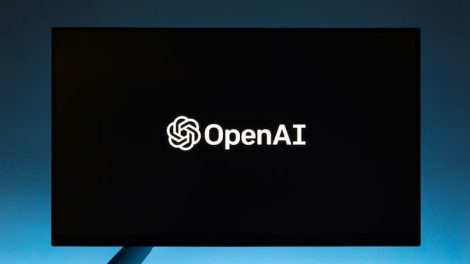In a world where technological advancements continue to reshape industries, Google has once again made a bold move by integrating more artificial intelligence (AI) into the web. This development underscores the company’s commitment to staying at the forefront of innovation while enhancing the digital experiences of both users and businesses.
At the heart of this push is Google’s mission to make information more accessible and actionable. By embedding AI more deeply into its services, Google aims to provide users with smarter, faster, and more personalized search results. This initiative not only strengthens its competitive edge but also raises the bar for other tech giants vying for dominance in the AI-driven era.

A key aspect of Google’s latest AI integration involves improving search functionalities. Traditional search methods often require users to sift through numerous links to find the information they need. With advanced AI models, Google now offers more refined and context-aware search results, streamlining the user experience. This means that instead of navigating through pages of search results, users are presented with concise answers that directly address their queries.
For businesses, this evolution presents both opportunities and challenges. On one hand, companies can leverage AI-driven tools to better understand consumer behavior, optimize their online presence, and increase visibility on search engines. On the other hand, businesses must adapt to the changing landscape by producing high-quality, relevant content that meets the evolving expectations of search algorithms.
The use of AI in web services extends beyond search enhancements. Google has also introduced AI-powered features across its suite of products, including Gmail, Google Docs, and Google Photos. These features are designed to improve productivity and user engagement. For instance, AI-driven suggestions in Gmail help users compose emails more efficiently, while advanced editing tools in Google Photos allow for seamless photo enhancements.
Moreover, Google’s AI advancements have significant implications for e-commerce. With AI-powered product recommendations, businesses can offer a more personalized shopping experience, increasing customer satisfaction and boosting sales. By analyzing user preferences and purchase history, Google’s algorithms can predict what products a customer is likely to be interested in, creating a more tailored shopping journey.
Another noteworthy development is the integration of AI into Google’s advertising platform. Advertisers can now harness the power of machine learning to optimize their campaigns in real-time. This includes targeting the right audience, determining the best ad placements, and maximizing return on investment. The result is a more efficient and effective advertising strategy that benefits both advertisers and consumers.
However, with the rise of AI comes the need for responsible implementation. Google has emphasized its commitment to ethical AI practices, ensuring that its technologies are developed and deployed in ways that respect user privacy and promote transparency. This includes providing users with greater control over their data and ensuring that AI-driven decisions are explainable and fair.
To support its AI ambitions, Google continues to invest heavily in research and development. The company’s AI research division, Google Brain, plays a pivotal role in driving innovation and advancing the state of the art in machine learning. By fostering a culture of experimentation and collaboration, Google remains at the cutting edge of AI technology.
The impact of Google’s AI push is already being felt across various sectors. In healthcare, for example, AI-powered tools are being used to analyze medical data and assist in diagnosing diseases. In education, AI-driven solutions are helping to personalize learning experiences for students, making education more accessible and effective.
Looking ahead, the potential applications of AI are virtually limitless. As Google continues to refine its AI capabilities, we can expect even more transformative changes in how we interact with digital services. From virtual assistants that anticipate our needs to smart cities that optimize resources and improve quality of life, AI is poised to redefine our world.
While the benefits of AI are undeniable, it is important to acknowledge the challenges that come with it. Issues such as data privacy, algorithmic bias, and the potential for job displacement must be addressed to ensure that the adoption of AI is both responsible and inclusive. Google’s efforts to navigate these challenges will be closely watched by industry stakeholders and regulators alike.
The competitive landscape in the AI space is heating up, with companies like Amazon, Microsoft, and Apple also making significant strides in AI development. Google’s ability to maintain its leadership position will depend on its capacity to innovate, adapt, and deliver value to users and businesses.
In conclusion, Google’s decision to infuse more AI into the web is a testament to its vision of a smarter, more connected future. By leveraging the power of AI, Google is not only enhancing its own products and services but also setting the stage for a new era of digital innovation. As you navigate this evolving landscape, staying informed and adaptable will be key to harnessing the full potential of AI.










Add Comment